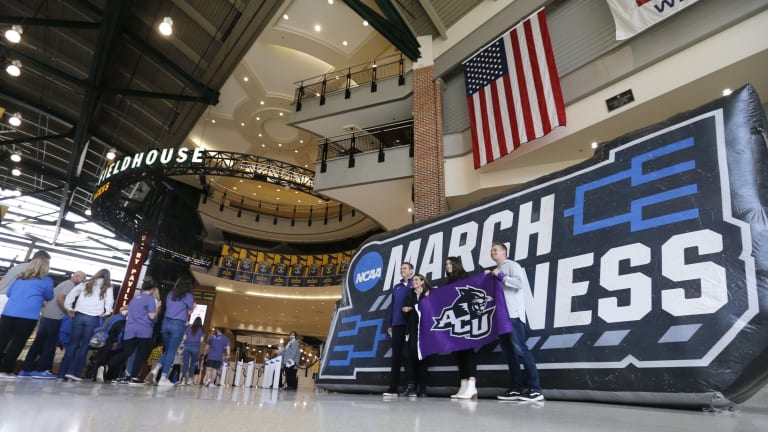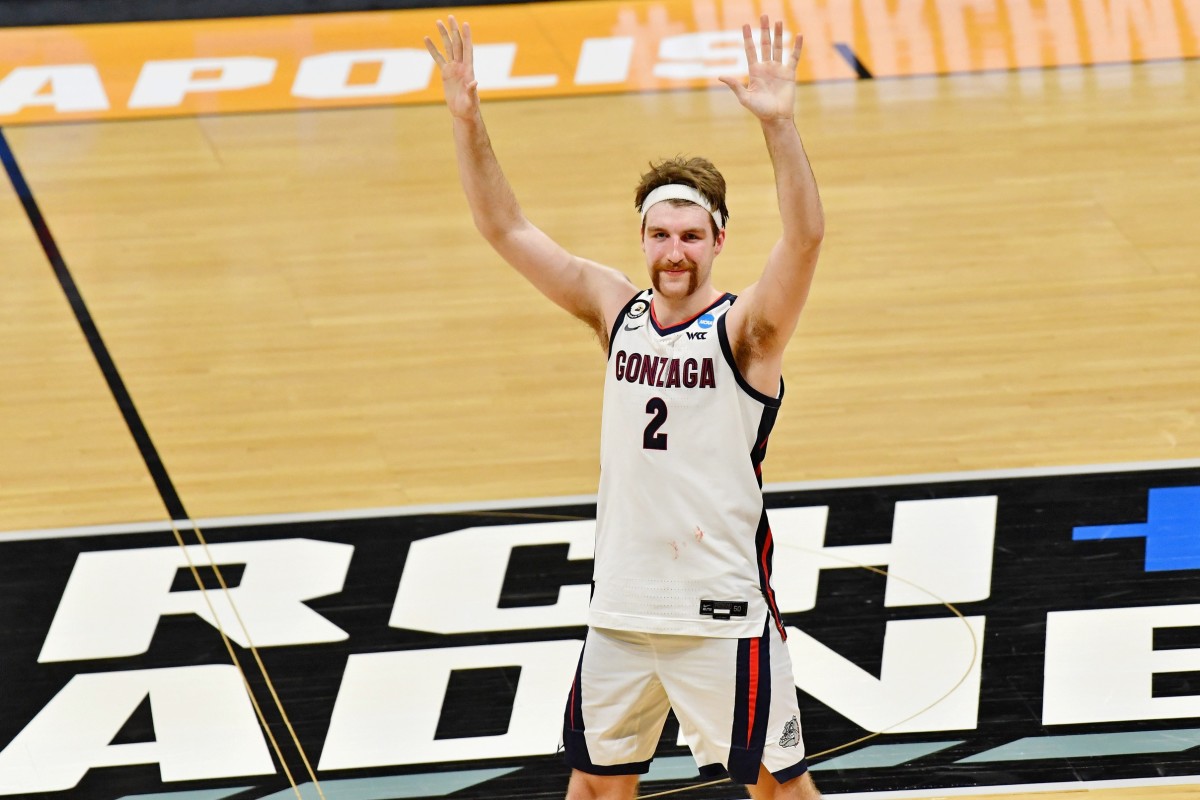
A Jersey Guy: NCAA Still Living in Fantasy Land

Basic question.
Should big-time college football and men's basketball be considered "amateur'' sports?
It's not a new query and the line becomes less clear each year, especially with all the changes and havoc created by COVID-19 issues, with billion dollar revenue numbers being generated. and legislation being considered to change the system.
The latest tidal surge coming from college athletics is the age of "free agency'' and the issue of whether the NCAA "student athletes' should be compensated for the use of their image and likeness.
And now it has reached the United State Supreme Court and Congress, where the issues of how college football players and basketball players--many of whom are now publicly expressing their opinion--shall be categorized.
The issue was again raised this week in Indianapolis at the Final Four, where NCAA President Mark Emmert had his annual update.
Midway through the press conference, the basic questions were asked and even more directly, why Emmert should be the perceived leader of the pack..
"What is amateurism to you right now? What should it be in the future?
Emmert was direct in his answer.
""The essence of college student-athletes is the notion that, first and foremost, they are full-time students who are pursuing a degree and seriousness, and they're an integral part of their university or college, that they are not employees of that institution, they are not employees of that institution, that the relationship between the school the college athlete is one of student and university, not employee-employer.
Secondly, they're not paid to perform in their sport. This is not about the so-called pay-for play. They're not being hired, they're being recruited. They're not being paid, they're being provided support for their academic ventures. They're not employees of the school like you would have all the other employees at a university.''
Really?
Emmert is spouting the party line because that is his job, which in the opinion of many observers, he has not done very well in many areas. But it seems obvious, his time span of effectiveness has come and gone.
And now he is trying to guide the NCAA through the final days of an revenue producing athletic period which has been devastated by COVID-19 issues.
It has been a bumpy ride which, to the dismay of many, is about to be completed.
But let's take a look at a few issues which raises serious questions about the validity of Emmert's "amateur'' "student-athlete vs. employee'' defense.
The majority of the 130 FBS schools completed a college football season last fall. There were championships crowned, bowl games played and most importantly of all, a national championship playoff, in which Alabama again emerged.
Some schools and conferences ( Ivy) and Division 2 and 3 chose not to play for a variety of reasons.
The overwhelming consensus was that the deciding factor of to play or not to play was simply a financial decision.
If revenue issues were not involved, there would have been no college football last fall--or at least nowhere outside of the Southeastern Conference.
And while many schools basically shut down their campuses, held virtual classes and other activities were curtailed or cancelled, the football players were sequestered, isolated and went about their BUSINESS, which was football.
The cash cow for all of the NCAA was the men's basketball tournament, a billion dollar venture which generated 79 percent of its annual revenue.
There was NO tournament last season, which wasn't going to happen this year no matter how long it would take or what changes had to be made.
And it appears the NCAA, by turning the state of Indiana and the city of Indianapolis into a "bubble'' environment for 68 teams, is going to make it work.
Good for them, good for the sport, good for college basketball fans.
But what we have witnessed over the fall and over the winter and now into the spring, which has produced a Final Four of Gonzaga, Houston, Baylor and UCLA, are incredible sacrifices made by representatives of those universities--not necessarily "student athletes".
And what we are seeing is that the times-are indeed changing--in the courts, both judicial and athletic and on campus.
One of the changes which the NCAA has been forced to explore is allowing more freedom for players who want to switch schools.
The NCAA restricted that desire with a clause of sitting out for one season before playing at another school.
That is about to disappear, with NO restrictions, which has created what has been labeled as a "transfer portal'', which currently has more than 1,100 players, with more declaring every day--in essence '"free agency'', which becomes even more chaotic when schools who have made millions of dollars in revenue by using the likeness or image of their star athletes are forced to compensate the athletes.
The danger of such a move is obvious, where cash-rich upper tier schools will simply restock their talent level each season by shopping in the transfer portal.
In college basketball, coaches from mid-major conferences such as the CAA and A10 are already feeling the effects of their best players taking their talents to more high profile schools.
Good luck with that.
Emmert, who has had a bad year which also includes gender inequity issues in dealing with the men and women's tournaments, can talk all he wants to about his perception of amateurism but that concept doesn't exist at the highest level of the sports the NCAA is governing.
And it's going to get worse, much worse when the bidding wars for first team all conference or All American players become public knowledge.
"No wants to deal with the mercenary mentality that this creates,'' said one mid major .college basketball coach, who has watched his roster raided by a major conference school. ""It's a different world. It's probably one of the reasons why (North Carolina Coach Roy Williams decided to retire. How are you going to handle all of this. It's absurd.''
The real absurdity of course is in the NCAA remaining tone deaf to the noise around them in terms of being proactive to change, rather than reactive.
In the past, the NCAA has gotten away with such actions.
Not any more.